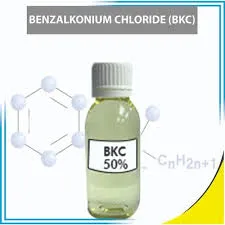Organic Phosphonates
The Role of Organic Phosphonates in Modern Chemistry
Organic phosphonates are a fascinating class of compounds that have garnered significant attention in both academic and industrial fields due to their unique properties and diverse applications. Structurally, phosphonates are characterized by the presence of a phosphorus atom bonded to an organic moiety and one or more oxygen atoms. This unique combination imparts distinctive chemical behavior, making phosphonates valuable in various sectors, including agriculture, medicine, and materials science.
One of the most notable applications of organic phosphonates lies in the agricultural industry. They serve as essential components in the formulation of herbicides and fungicides, providing effective means of controlling undesirable plant growth and pathogens. For instance, glyphosate, a well-known herbicide, is a phosphonate that works by inhibiting a specific metabolic pathway in plants. The effectiveness of phosphonates in pest management has allowed for the development of more sustainable agricultural practices, minimizing the environmental impact compared to traditional chemical treatments.
Moreover, organic phosphonates are increasingly explored in medicinal chemistry. Their structural versatility allows for the development of novel therapeutic agents, particularly in treating viral infections and cancers. Research has shown that certain phosphonates exhibit potent antiviral activity against viruses such as HIV and Hepatitis B. The ability of these compounds to inhibit viral replication and their potential to overcome drug resistance make them promising candidates for future antiviral therapies. Additionally, phosphonate-containing drugs can target specific cellular pathways, further enhancing their therapeutic effectiveness.
organic phosphonate

In the realm of materials science, organic phosphonates are recognized for their role as effective flame retardants. When incorporated into polymer matrices, phosphonates can significantly enhance the fire resistance of materials, making them suitable for applications in construction, electronics, and automotive industries. Their ability to form a protective char layer during combustion helps in slowing down the spread of flames, thereby improving safety standards.
Furthermore, organic phosphonates have drawn interest in the field of coordination chemistry. Their ability to form stable complexes with metal ions allows for the development of catalysts used in various chemical reactions. These phosphonate-metal complexes have potential applications in the synthesis of fine chemicals and in the production of energy.
In summary, organic phosphonates represent a versatile and valuable group of compounds with significant implications across multiple disciplines. Their roles in agriculture, medicine, materials science, and catalysis highlight their importance in addressing contemporary challenges. As research continues to unravel their potential, organic phosphonates are poised to play an even more critical role in future innovations and applications.
-
Water Treatment with Flocculant Water TreatmentNewsJun.12,2025
-
Polymaleic AnhydrideNewsJun.12,2025
-
Polyaspartic AcidNewsJun.12,2025
-
Enhance Industrial Processes with IsothiazolinonesNewsJun.12,2025
-
Enhance Industrial Processes with PBTCA SolutionsNewsJun.12,2025
-
Dodecyldimethylbenzylammonium Chloride SolutionsNewsJun.12,2025





